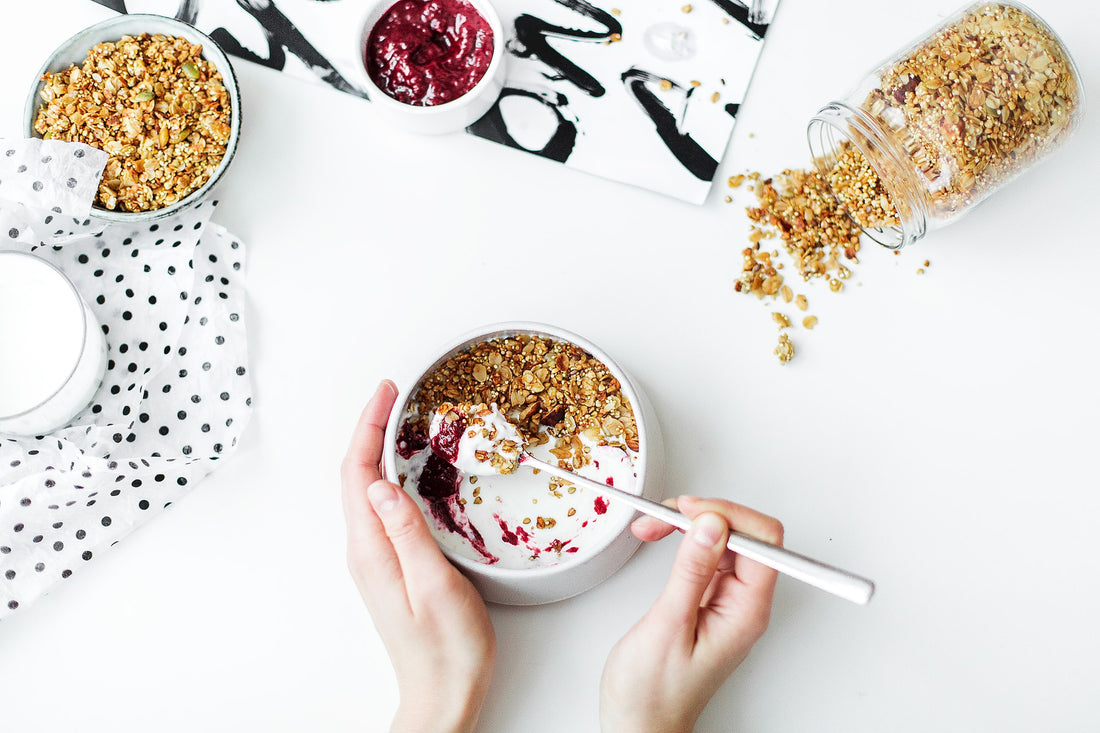
Caring For Your Bacteria: What to Do (And Not Do) For a Healthy Microbiome
Share
There are more bacteria in your body than there are actual human cells, and these bacteria (your microbiome) play a role in everything from immune system response to digestion. Unfortunately, many people suffer from microbiome imbalances or poor microbiome health. This can lead to an increased risk of disease, including a higher risk of diabetes and heart attacks, as well as daily inconveniences like bloating and gas. If you want a healthy microbiome, here’s what you should be doing every day (as well as things you should be avoiding).
Healthy Microbiome: What You Should Be Doing Every Day
 The bacteria in your body are living organisms, and they need specific things to thrive and fully populate your body.
The bacteria in your body are living organisms, and they need specific things to thrive and fully populate your body.
For a healthy microbiome, employ these strategies in your daily life.
1. Eat a Diverse Array of Foods
Some people may be limited in what they eat out of necessity, such as if you’re celiac and are on a strict gluten-free diet. On the other hand, some of us eat a limited variety of food out of personal preference.
The more variety you can add to your diet, the healthier your microbiome. That’s because new foods help introduce new bacteria strains into your body. Plus, different bacteria thrive off of different foods, ingredients and compounds, so a diet that’s high in variety ensures your microbiome gets everything it desires.
2. Focus on Polyphenols
 Your microbiome breaks down the polyphenols in your food, and these compounds help to stimulate healthy bacteria growth.
Your microbiome breaks down the polyphenols in your food, and these compounds help to stimulate healthy bacteria growth.
Some of the best sources of polyphenols, according to Colorado State University, include colorful fruit, such as blackberries, blueberries and strawberries, and dark-green leafy vegetables, including spinach and kale.
Herbal teas, especially green tea, are also rich sources of polyphenols. Such teas serve a dual purpose: Staying hydrated may further benefit your microbiome and keep your bacteria population healthy.
3. Eat and Take Probiotics
Probiotic foods are fermented foods teeming with healthy bacteria. Popular options include fermented dairy (e.g., yogurt, kefir, etc.), sauerkraut, kim chi, and fermented soy products like tofu and tempeh.
By eating these foods, you’re introducing a diverse range of bacteria directly into your body.
You may also want to consider taking a probiotic supplement. Such supplements pair well with other immune-boosting supplements, including BioPro-Plus 500.
4. Add More Fiber to Your Diet
Fiber helps to feed your gut bacteria. Top fiber choices include whole grains, whole fruits and veggies, nuts, and legumes.
Healthy Microbiome: Things You Should Be Avoiding If You Want a Thriving Bacteria Population
 It’s not only about what you should do, but also about being aware of the habits you do that might sabotage your microbiome.
It’s not only about what you should do, but also about being aware of the habits you do that might sabotage your microbiome.
If you want a healthy microbiome, try to limit or avoid the following when possible:
- Alcohol
- Added sugar
- High amounts of salt
- Smoking
- Red meats and other animal products (they’re often a source of E. Coli and other unhealthy bacteria, which can disrupt your natural microbiome balance)
- Avoid Triclosan (a common ingredient in toothpaste) and mouthwashes that kill bacteria
Combined, the above strategies can help to ensure your body’s bacteria population are healthy and balanced.
Beyond the Healthy Microbiome: Keep Reading For More Immune System-Supporting Tips and Advice!
